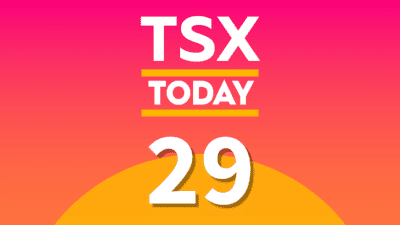If you don’t own stocks now, you could be kicking yourself later. At least, that’s the advice of popular financial commentator Garth Turner.
Garth is a bestselling author and financial speaker. However, most Canadians probably know him best as a rebellious Member of Parliament that was kicked out of Stephen Harper’s caucus in 2006 for blogging about party business.
From his popular blog GreaterFool.ca, Garth warns that too many Canadians are overexposed to real estate. A balanced portfolio, he argues, is a far safer strategy for baby boomers hoping to retire.
In the fourth and final part of my interview with Garth, we discuss real estate, tax-free saving accounts, and the biggest mistakes Canadian investors make. The following is a transcript of our conversation. It has been lightly edited for clarity.
Robert Baillieul: Years ago, you wrote that the system taxes financial illiteracy. Business tax rates are lower, yet people want to earn employment income. The stock market earns about 6% annually, but people want to hoard cash that earns nothing. There are a lot of advantages out there, but people always want to go the hard way.
Garth Turner: Totally. I will write a little article on how much income is taxed, and people will write to me saying “I had no idea.”
Why don’t people earn capital gains when they pay more to work at the grocery store? It’s a mystery to people why we have different tax rates for interest, income, and capital gains. They’re not taught this anywhere. The banks don’t educate them. That’s where most people get their financial knowledge.
We keep most of the population pretty ignorant on this. The government is the net beneficiary.
Baillieul: Of Canadians that do own stocks, you have criticized them for keeping too much of their wealth inside our borders. Why is that a bad idea?
Turner: Home-country bias is a problem everywhere. Canadians have it; Americans have it; lots of people have it. However, it’s a big problem when you live in a country whose capital markets represent only 3% of the world.
If you’re an American and you have home-country bias, that’s not so bad. The U.S. market represents 57% of the world’s capitalization. You can do quite well.
Unfortunately, we’re in Canada. It’s pretty much a backwater. The stats I’ve seen, and I have no reason to doubt them, 70% of Canadians who have equities are 100% in Canada. People are really hamstringing themselves because our economy is not diversified. Yeah, we have lots of oil, rocks, and trees. It was great for the past 10 years when we were going through a commodities boom.
Today, it’s not great. We’re lacking the things investors now want: Apple, Facebook, Twitter. We don’t have those in Canada.
Canadian investors are overexposed to commodities. They’re overexposed to financials. They’re underexposed to diversification.
The portfolios that we put together for people are about 60% equity based. Of that, maybe 16% or 17% will be Canadian exposure. The rest will be REITs, U.S. stocks, or international equities.
Baillieul: After Catamaran was acquired last week, I don’t think I can name a Canadian healthcare stock off the top of my head. We don’t have a healthcare sector. We don’t have a technology sector. We don’t have a utility sector.
Turner: That’s a great example, indeed.
Baillieul: Like you mentioned with tax-free savings accounts, or TFSAs, most Canadians are just hoarding their money in cash. Why is this a bad strategy? I mean, I could explain it myself. But maybe if you say it, it will sound more authoritative.
Turner: [Laughs] You don’t want to have cash or cash equivalents today, other than maybe as a small part of a well-diversified portfolio. Cash just earns nothing right now. The rates that you can earn on interest-bearing accounts are less than the rate of inflation. That means you’re actually going backwards. By stuffing cash into a TFSA, you’re not going backwards as fast because it’s not taxable. However, you’re still basically earning nothing on your money. It’s just a horrible strategy.
Why do people do it? Well, the TFSAs are misnamed. They should’ve never been called tax-free savings accounts. They should’ve been called tax-free investment accounts. That would’ve helped.
The government is a little bit to blame. This past week, Joe Oliver sent a letter to his caucus calling TFSAs a success. As he explained, Canadians have used them to save for a vacation, their children’s education, or a down payment on a home. They’ve stressed that TFSAs are just some glorified savings account where you’ll save a bit of tax on interest. There’s a lot of blame to go around here.
Sadly, Canadians have gotten the wrong message. Sadly, they’re squandering the opportunity to use a great vehicle.
Baillieul: It amazes me how wrong people’s perception of risk is. I mean, tomorrow I could lose a lot of money in the stock market. But let’s think over a time frame like 30, 40, or 50 years. Over that stretch, I don’t see how anyone can justify having cash over, say, a good equity ETF like the iShares S&P/TSX Capped Composite Index Fund (TSX:XIC).
Turner: Robert, people don’t have a good grasp what risk is. They believe risk is losing money. That’s not the case. The biggest risk is running out of money. The average life expectancy is extreme, especially if you’re a woman. Sadly, women tend to be a little more risk averse than guys.
We have to relearn what risk is. We need a consistent rate of return through our entire lives. The government is not going to be there for you at the end of the day.
People need to acquire a significant amount of assets. Risk is well misunderstood.








